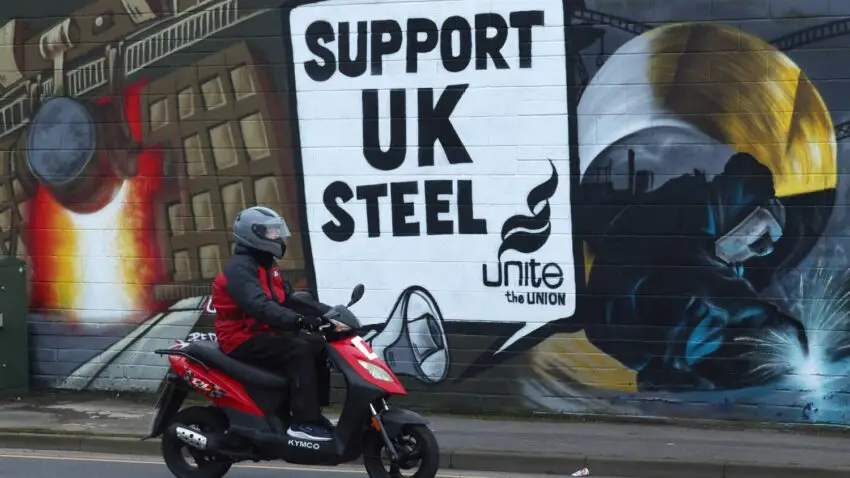British Steel’s decision to close the Scunthorpe blast furnaces will result in the loss of 2,500 jobs, despite receiving £600 million in taxpayer-funded support for green initiatives.
The company is currently in discussions with the UK government to reduce imports of coking coal, initially planned to continue for two more years, as part of a £1.3 billion decarbonisation strategy. This decision could replace the three million tonnes of steel produced in Scunthorpe with imports from China, signalling a potential end to large-scale UK steel production.
British Steel, acquired by China’s Jingye Group in 2020, has been experiencing severe financial difficulties, reportedly losing £1 million per day. Although the initial plan was to maintain the operation of blast furnaces during the construction of a new electric-arc furnace in Teesside—thereby preserving jobs—the revised plan now jeopardises significant job positions.
Union leaders expressed their outrage over this development. Charlotte Brumpton-Childs of GMB stated that the early closure of the Scunthorpe furnaces would be devastating for both the local community and the workforce. Unions have claimed they were not consulted about these recent changes and are demanding immediate discussions with British Steel and the government to protect jobs.
This closure also raises broader concerns about the strategic implications of losing domestic steel production, which is crucial for the UK’s construction, rail, and energy sectors. The output from British Steel is essential for projects, ranging from nuclear reactors to wind turbines, increasing anxieties about the UK’s reliance on foreign steel.
Recent discussions between the Labour party and Jingye over a possible rescue deal have added a political dimension to the issue. Critics, including Kevin Hollinrake, the shadow business secretary, have accused Labour of betraying the UK steel industry by supporting the shift towards imported steel, despite earlier promises to invest in domestic production.
The government’s decision on British Steel’s decarbonisation plans and the future of its Scunthorpe operations remains pending. Consequently, thousands of jobs and the future of UK steelmaking hang in the balance.
The outcome of British Steel’s talks with the UK government and the pending decision on its decarbonisation plans will determine the future of 2,500 jobs and the UK steel industry as a whole.


